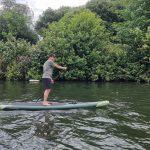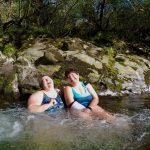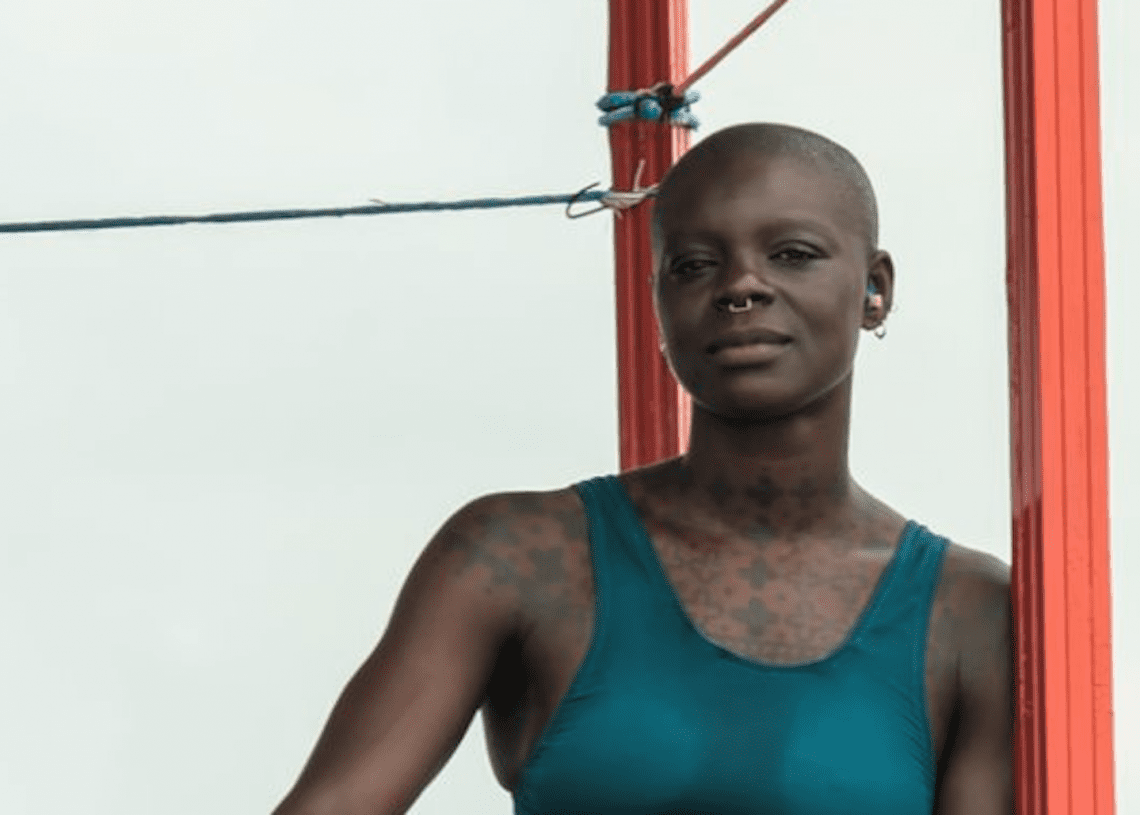
Yvette Tetteh: The woman who does not fear
Yvette Tetteh’s epic 450km swim down the Volta river system in Ghana highlights the environmental damage done to the country by fast fashion and the trade in second-hand clothes. By Jonathan Cowie
“This whole endeavour is very indicative of my approach to many things. I’m very much like, I’m doing this thing and will figure it out later.”
I am speaking to 30-year-old British- Ghanaian agribusiness entrepreneur, athlete and activist Yvette Tetteh over Zoom. Her remark belies not only the months of training she did before her swim, but also the enormity of the challenge she undertook: 40 days of swimming the 450km length of the Volta river system. It is an incredible achievement for someone who previously only swam “for fun.”
It is also an incredible achievement with a purpose: to raise awareness of pollution in Ghana caused by the trade in secondhand clothes.
The swim builds on a year and a half of scientific research by The Or Foundation, an Accra-based NGO of which Tetteh is a board member, into the environmental impact of second-hand clothing waste flowing through Ghana.
Bales of waste
As one of the largest recipients of used clothing in the world, Ghana sees some 15 million items of second-hand clothing from global north countries such as the EU, the UK and the US entering local markets every week. This is where clothes that you give to a charity shop could end up if the shop is unable to sell them. On average 40% of every bale of second-hand clothing opened in Ghana’s largest second-hand market, Kantamanto, is discarded as waste, causing enormous environmental and social upheaval. Waste textiles from fast fashion choke the country’s waterways and beaches.
“The problem is not necessarily that this trade exists,” says Tetteh. “The problem is that it’s not appropriately regulated, and those at the end of the line are not appropriately equipped to process the volume of items that are arriving.”
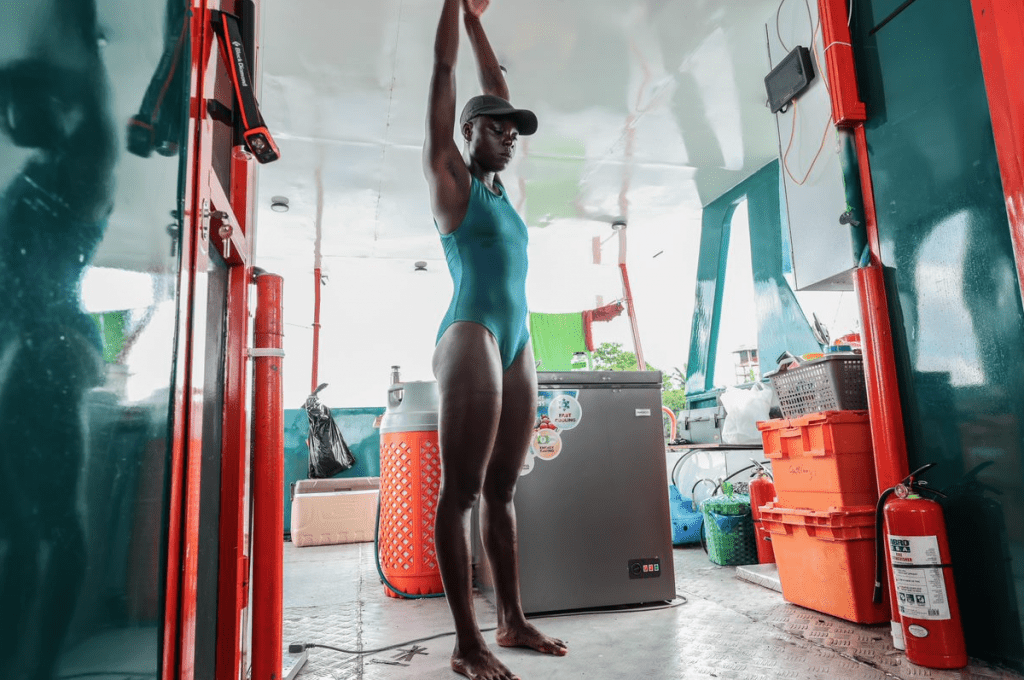
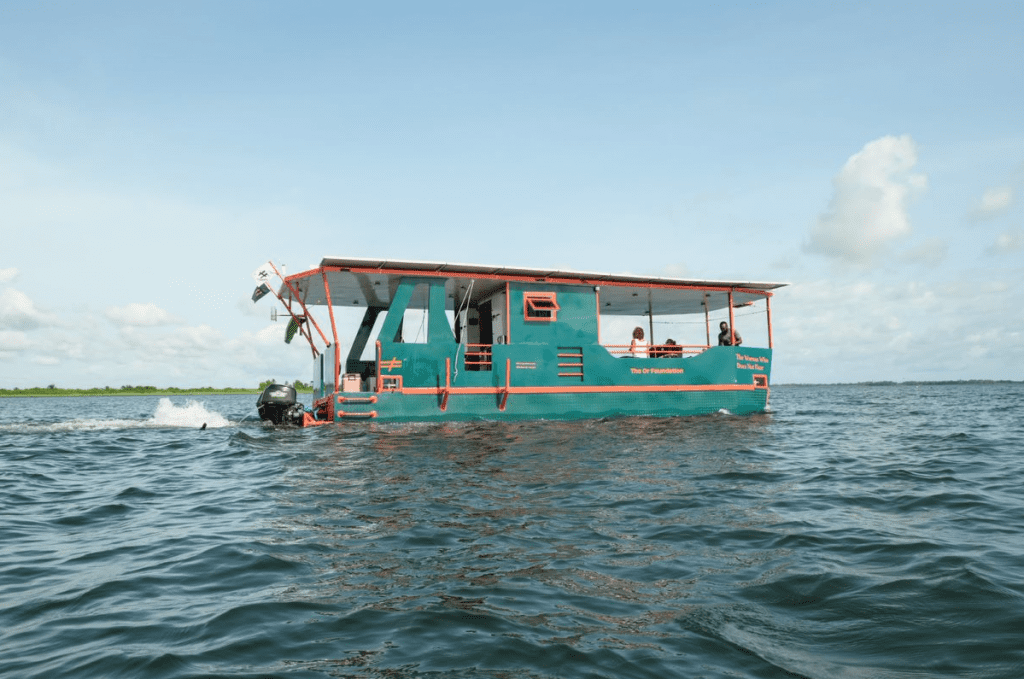
Bales of clothes are sold sight-unseen to local traders to sell or upcycle, but the clothes are often unusable: Tetteh speaks of bales of blood-stained or mouldy clothes. With little formal waste management in Ghana, discarded clothes are dumped in illegal landfills that overflow onto farmland and into waterways and the ocean.
“What we’re calling for now is globally accountable Extended Producer Responsibility and an end to waste colonialism,” says Tetteh. EPR policies shift the responsibility of a product’s lifecycle to the producer, including recycling and final disposal. “Countries in the global north are exploiting the land and people of a different country in order to not have to properly deal with their problem.”
A connection to home
There is a long history of swimming as a form of political activism: think Lewis Pugh’s ice swims to raise awareness of climate change and Lynne Cox’s many swims with a political agenda, for example her crossing of the Bering Strait from the US to Russia, Middle East peace swims and swim along the Spree between east and west Berlin. But Tetteh is wary of casting herself in the same role.
“One of the main motivations of the swim was to draw attention specifically to the impact of second-hand clothing trade and waste in Ghana,” says Tetteh. “But it was also about developing my own relationship to Ghana and my own identity about what it means to be Ghanaian. There is this profound relationship that I have with the whole expedition, and I would want to have a similar sincere connection with other expeditions. It’s really important to me that there is a personal, emotional and meaningful connection to what I’m doing.”
Tetteh moved to Ghana as an adult but grew up in South Africa. Like many middleclass families they had a pool, and she started swimming lessons at four years old before swimming competitively at school. At university she gave up swimming competitively but still swam for fun. “I’ve always loved it,” she says. “When I see water, I’ve got to get in it.”
The beauty of the Volta
That love of the water is obvious when Tetteh speaks about the Volta swim. “One of my highlights was to explore and experience Ghana and the river in a way that is just not available to most people. It’s truly gorgeous,” she says. “We had some beautiful days with dazzling new skies. You just feel so free.”
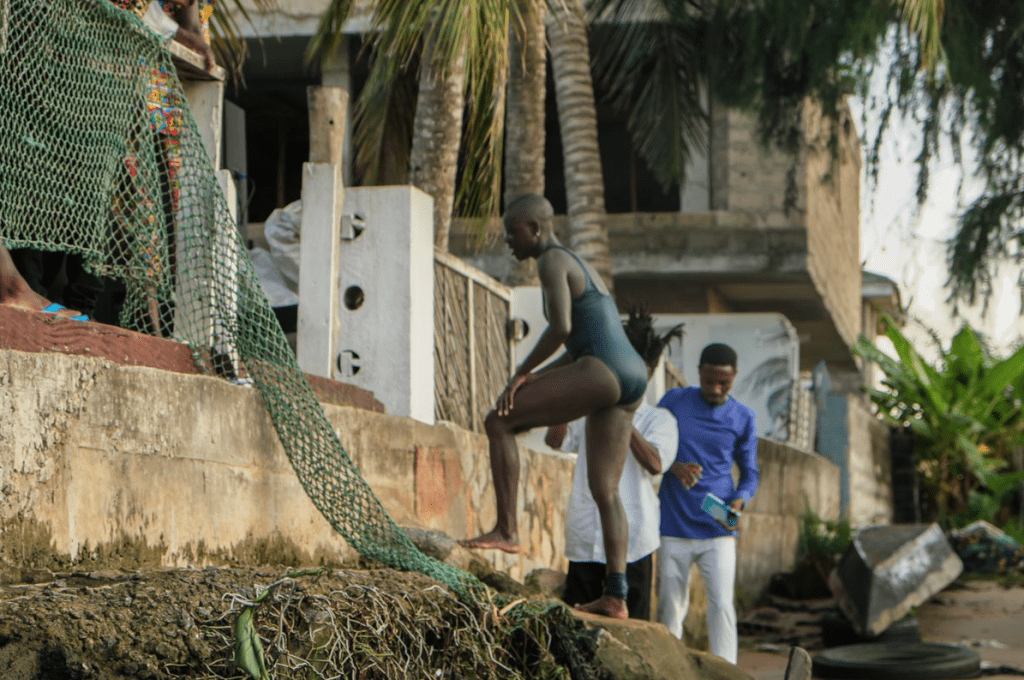
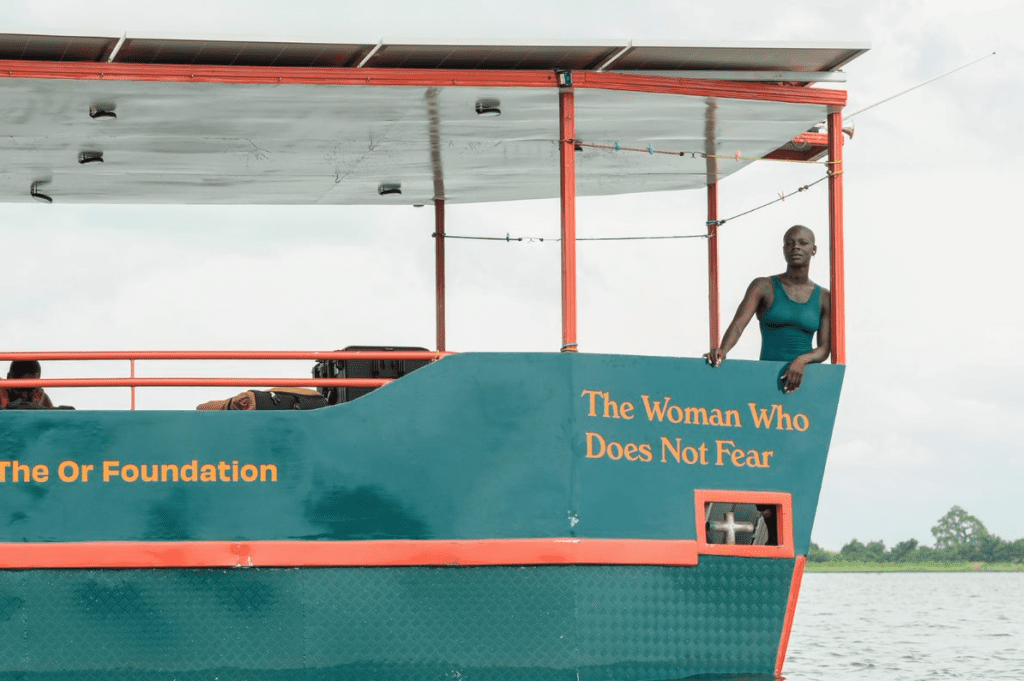
Despite the Volta river challenge being her introduction to open water swimming, Tetteh speaks like a true outdoor swimmer: “I was so driven by the experience of joy. No matter how difficult it was, every single day I experienced joy, the joy of feeling alive in my body, and being so fit, so healthy.” It is a feeling that I am sure many of us can relate to.
To go from ‘zero to hero’ took Tetteh nine months of rigorous training – the majority of which took place in the pool. She slowly built up the times and distances she swam, as well as taking the advice of a swim coach to help with her technique. “Oh my gosh, that was a game changer!” she says. “I worked with a coach who is French but based in Ghana. When I first reached out to him, I said I think it’s important that I do some technique work, but I actually already think I’m a pretty strong swimmer, so I’m not sure how much you’ll be able to do. And then the first day of coaching, he just looked at me and was like, oh, we have a lot of work to do.” Tetteh now says that her technique coaching was fundamental to her success.
Finding purpose
Tetteh started training for the swim at a low point in her life and, like many swimmers, found strength and healing in the water. Tetteh runs a dried fruit processing start-up and as well as coping with challenges of Covid and lockdowns also has to deal with the difficult business environment in Ghana. Her self-esteem was low but she found swimming gave her a sense of purpose. “Swimming, training and the expedition really allowed me to click into a deep sense of purpose without being self-involved,” she says. “It helped me create structure and shape for my life.”
On the swim itself, Tetteh swam between 10 to 20 kilometres every day, broken into shorter chunks. She was accompanied by a safety and scientific team on board her support boat The Woman Who Does Not Fear and collected water samples every day to help build a picture of the effects of waste pollution on Ghana’s waterways.
Apart from a recce of the expedition route last year, where she did a few short test swims, Tetteh had little open water experience.
The final push
“The last day was so hard,” she says. After swimming six kilometres in the morning she got back in the water to finish the swim. “The water was super choppy, there was wind and there was no current to speak of behind me. And so I swam an hour, I swam two hours and we weren’t close. And I just thought, oh my gosh. And then I swam three hours and we still weren’t there. I was never going to give up, but that was the time where I was like, I just have to become a robot now.”
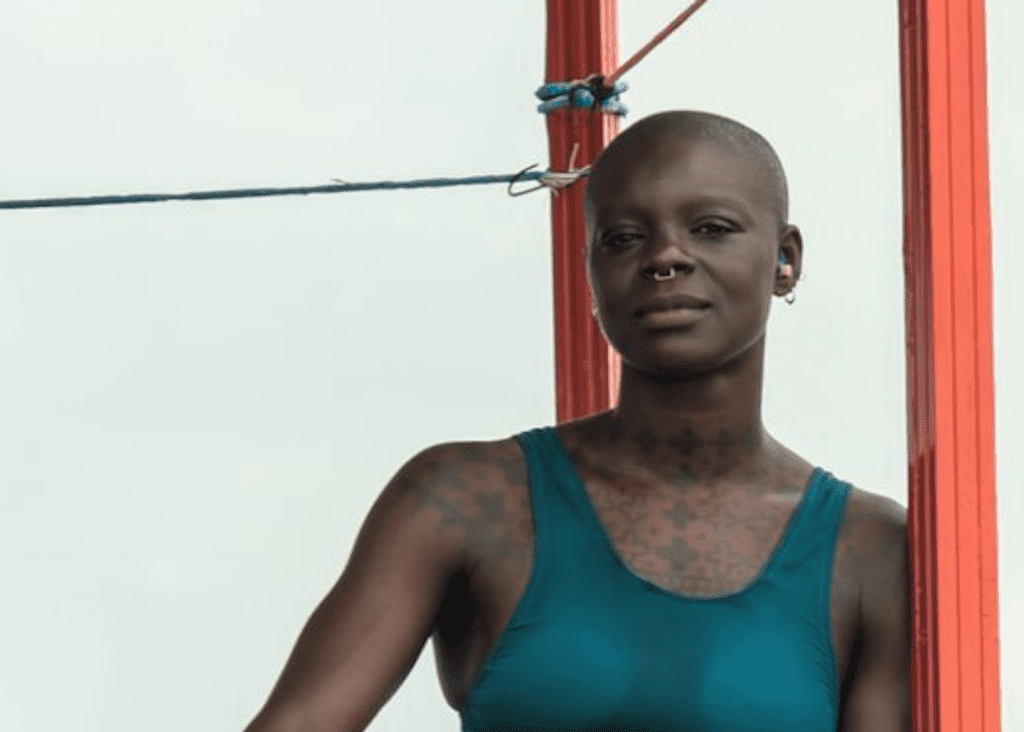
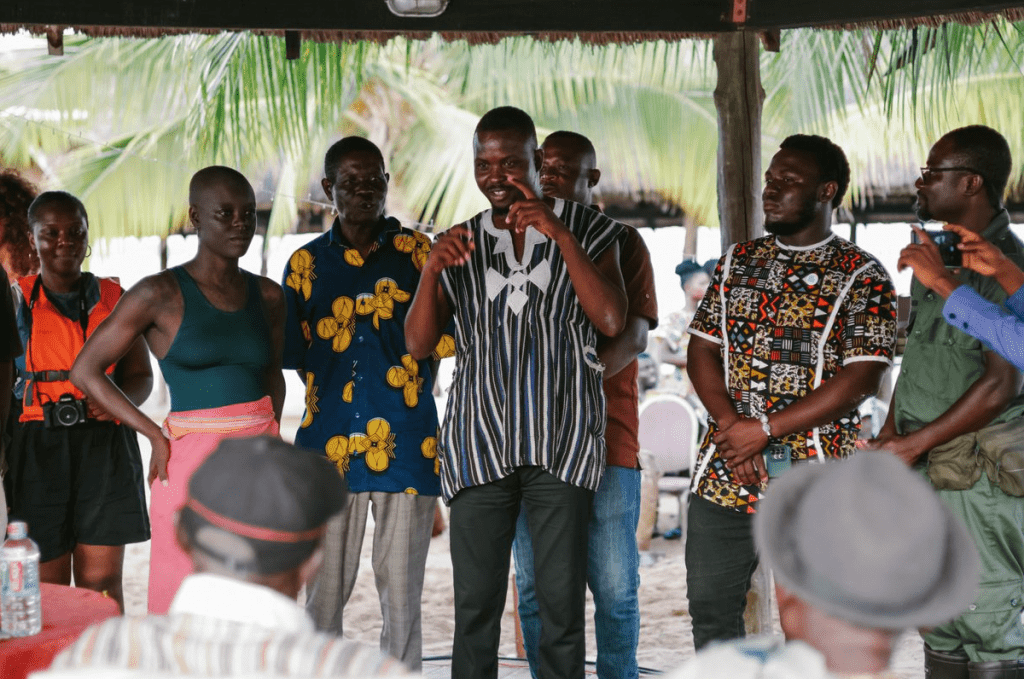
Tetteh was so tired that she didn’t even want to waste the time and energy to cry. She pushed through and to the sounds of a drum troupe she touched land for the final time to be welcomed by the local chief and community leaders.
I ask Tetteh what she has learnt about herself from the swim. “One of the gifts of having done this expedition is that I have this really deep sense of my own capacity, capability and strength. Now I feel confident to land somewhere and just go swim. I think that’s such a beautiful superpower to have.”
Find out more
Expedition website: livingwaterswim.org
Stop Waste Colonialism petition: stopwastecolonialism.org
The Or Foundation: theor.org







